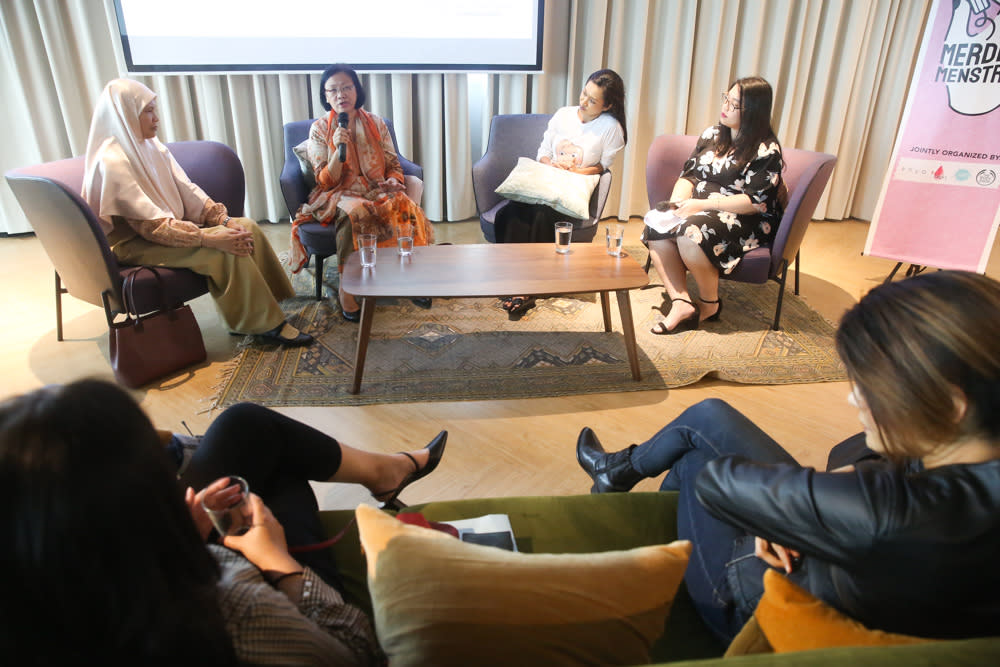Too poor to buy sanitary pads, period poverty remains problem in Malaysia

KUALA LUMPUR, Nov 18 — Coconut husks, newspaper sheets, and banana leaves.
These are some of the items underprivileged women and girls in Malaysia have used in place of proper sanitary products during their period.
While no statistics exist for period poverty in Malaysia, National Population and Family Development Board (LPPKN) head of reproductive health unit Dr Hamizah Mohd Hassan said that women from the B40 group definitely struggle with this issue.
She was speaking at a panel titled Moving Forward: Period Poverty After Pink Tax during the Merdeka Menstrual event last weekend alongside Petaling Jaya MP Maria Chin Abdullah and SPOT Malaysia founder Aishah Hoo.
Period poverty is defined as the inability of a menstruating person to access sanitary products and safe, hygienic places in which to use them.
This often results in girls skipping school every month during their period, causing them to miss out on their education which will eventually lower their chances of securing a stable job in the future.
Going hand-in-hand with period poverty is the Pink Tax, which refers to the extra amount women have to pay for feminine hygiene products.
Last year, Malaysia removed the Pink Tax on products like pantyliners and pads.
This relieved millions of women of having to pay an extra 6 percent of goods and services tax (GST) for an essential item.
While the removal of the Pink Tax does make menstrual products slightly more affordable, Maria said more can be done by corporate companies to reduce the overall price of pads.
“Corporate companies need to be responsible and figure out ways to lower their production costs and prices for sanitary products and give some leeway to support B40 communities.
“It’s a responsibility that has to be shared with the government,” she said.
Maria said the Bunga Pads initiative, supported by the Youth and Sports Ministry, will see eco-friendly reusable pads being distributed to underprivileged women and girls in East Malaysia.

The panel also discussed the social stigma surrounding periods which forces some girls to miss school every month when they menstruate due to feelings of shame.
Maria added that sexual and reproductive health education should not only cover menstruation but also inform young Malaysians on respecting different gender and sexual identities.
Aishah, meanwhile, said that most of the time, young girls who come from underprivileged backgrounds are afraid to tell their parents that they have had their period.
“This is the problem. They are surrounded by the perpetuation of shame and stigma around periods and that worsens the poverty around it,” said Aishah.
She added that teachers often failed to educate students properly on menstruation due to their own anxieties regarding the topic.
Normalising the subject of menstruation within society at large was also important to eliminate judgmental attitudes towards periods, a duty that Dr Hamizah says has to be shouldered by both parents and teachers.
“Parents should be the ones teaching their children about sex and puberty and it should be supported by the school curriculum.
“Some children cannot afford to go to school and they will miss out on the lessons about sex education and poverty, so the responsibility goes back to the parents.”
Related Articles Malaysian parliamentary group to engage with local communities to achieve sustainable development goals Will PKR MP Maria Chin face contempt proceedings? Shariah Court to decide Oct 14 Myths and menstruation: Overcoming Pakistan’s period taboo



